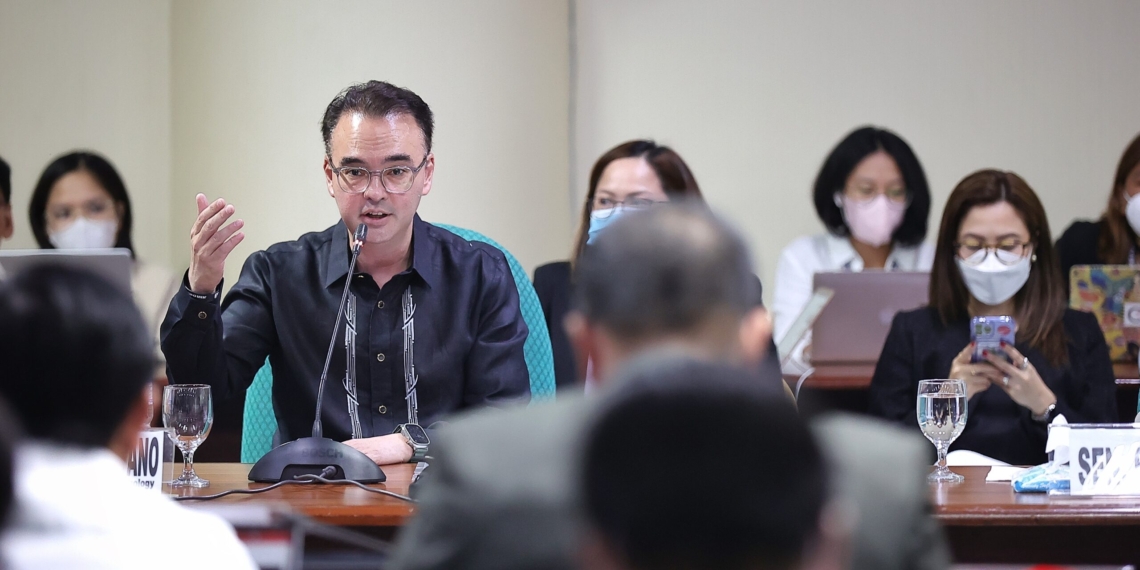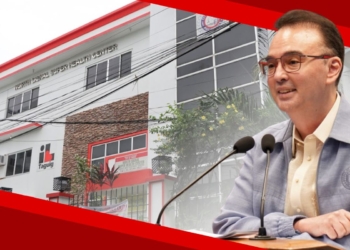Senator Alan Peter Cayetano on Monday said all efforts to transition the country to e-governance should not focus on innovation alone but ultimately on how digital technology can be a “game-changing” tool for good governance.
In the public hearing conducted by the Senate Committee on Science and Technology on bills pushing for the government’s transformation into an e-government, Cayetano urged the government to simplify transactions by putting order into the storage of and access to government data.
“E-governance is but a tool to the bigger topic which is basically good governance,” Cayetano, who chairs the Committee, said in his opening remarks.
He lamented the repetitive processes Filipinos have to go through when transacting with various government agencies and offices, filling up numerous forms with the same information instead of taking advantage of the Philippine national ID.
He noted that many Filipinos are still unwilling to apply for the national ID because there are relatively few benefits to having one.
“Dapat maging parang private sector tayo na kapag hindi ka nabenta, sarado ka. So you keep innovating on how you can make it better,” he said.
“Ang problema kasi people look at it as an additional burden. Meron na [silang] postal ID, may SSS, passport, bakit pa sila kailangang kumuha (ng national ID)? Pero kapag beneficial sa tao, kahit optional, kukunin [nila] y’un,” he added.
Interconnectivity
Undersecretary David Almirol of the Department of Information and Communications Technology (DICT) seconded the senator’s observation, saying it is the government’s lack of “interconnectedness” that is the major factor in the perennial problems.
He said the DICT is currently in the initial phase of the implementation of its flagship programs, which mainly address the lack of interconnectedness among local government units and agencies. These programs include e-LGU, e-Travel, e-GovPay, and eGovCloud.
“Ang mga ahensya kailangan nag-uusap. Ang nangyayari kasi noon, hindi nag-uusap-usap kaya paulit-ulit,” Almirol said.
Cayetano said the Committee’s end goal is to craft a law that will give the DICT “the right platform for e-governance” while “pushing the right buttons” to make it happen.
Appreciating the senator’s statement, Almirol said the lack of e-governance has resulted in a chaotic system of information. “I think kailangan ng matibay na batas talaga para maimplement siya,” he said.
Cybersecurity
Addressing cybersecurity, Cayetano suggested that new electronic products like telecommunication devices that enter the Philippine market be assessed for any malicious softwares.
He urged the DICT and the Department of Science and Technology (DOST) to have an independent and scientific inspection of all equipment and telecommunications hardware that will be procured and brought into the country in order to put an extra layer of technical security from espionage.
“Baka you (DICT) can work this out with ARTA (Anti-Red Tape Authority) because we want to prevent red tape but we also want security. At ayaw rin naman [natin] na may security ka pero isang taon bago mo ma-install lahat ‘yan,” Cayetano said.
He said while no country is being accused, “being cautious” is necessary since espionage has been a dangerous problem for a long time.
“We know for a fact that around the world, espionage since the beginning of time has been used to fight not only actual wars but also trade wars,” he said, referring to the rumors about certain Chinese companies inserting malware in gadgets.
For the next hearings, Cayetano said the Committee will tackle the proposal to transform the country into a “Smart Philippines” as a paradigm for e-governance.
“[We] ask God to guide us to the original design [of our society] which is good governance and enjoying the world created for us wherein no one is left behind in the Philippines,” he said.






